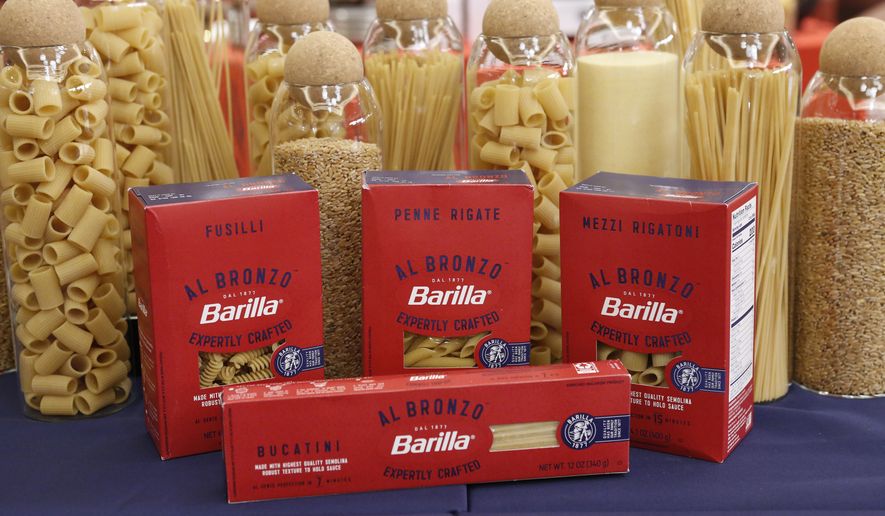A class action lawsuit accusing Barilla America Inc. of false advertising was allowed to proceed this week in the U.S. District of Northern California.
On its boxes, the brand advertises itself as “Italy’s #1 brand of pasta®,” and features the green-white-red tricolor scheme of Italy’s flag.
A Barilla ad campaign around its products also featured a historical archive, pasta museum, and cooking academy, all revolving around the Italian identity and origin of the brand.
The company notes on its website, however, that “Barilla Pasta that is sold in the United States is made in our plants in Ames, IA and Avon, NY, with a few exceptions. Barilla Tortellini and Barilla Oven Ready Lasagne are made in Italy.”
Plaintiffs Matthew Sinatro and Jessica Prost charged in their complaint that this is false advertising, and said that they would not have purchased the product had they known the truth of its manufacturing.
“Defendant [Barilla] sought to take advantage of consumers’ desire for authentic Italian pasta, while cutting costs and reaping the financial benefits of manufacturing the products in the United States of America. Defendant has done so at the expense of unwitting consumers, as well as defendant’s lawfully acting competitors,” the complaint reads.
The plaintiffs also argued that they and other consumers paid more for Barilla pasta on the assumption the product was made in Italy.
“Consumers seek out products that look or sound like they are from Italy because Italian products have a better reputation, and, as such, consumers willingly pay more for Italian sounding and/or looking products,” the complaint reads.
Barilla had filed a motion to dismiss the suit, prompting the review and an order Monday from U.S. Magistrate Judge Donna Ryu.
Judge Ryu allowed most of the false advertising suit to move ahead, except for a request for injunctive relief to prevent future harm.
As such, the California class-action claims that can proceed in court are “violations under the California Unfair Competition Law, California False Advertising Law, [and] California Consumers Legal Remedies Act,” according to the independent legal-news site Law Street Media.
The nationwide class-action claims for relief for breach of warranty and unjust enrichment also were allowed to proceed.
Judge Ryu wrote that the court “concludes that it is premature to dismiss the nationwide class allegations at the pleading stage,” and “denies Barilla’s motion.”
In particular, Judge Ryu rejected Barilla’s claims surrounding a similar lawsuit against King’s Hawaiian Rolls branding, which revolved around use of words like “aloha,” a pineapple and crown, and the company’s 1950 founding in Hilo, Hawaii.
The King’s Hawaiian “labels at issue in [the case] did not explicitly connect their origin to the present day. Nor did the labels exist against the backdrop of a long-standing marketing strategy expressly connected to a particular geographic location,” Judge Ryu wrote.
However, the judge denied the bid for injunctive relief, writing that since the two plaintiffs are now aware of where and how Barilla is made, they would not purchase the product and suffer “harm” again.
“Plaintiffs cannot plausibly allege that they remain unaware that the products are manufactured in the United States from ingredients that are not from Italy or that they reasonably would be misled if they encounter the challenged representation in the future … Their claim for injunctive relief is accordingly dismissed,” the order read.
Barilla did not immediately respond to a request for comment on the accusations of false advertising or the class-action lawsuit.
• Brad Matthews can be reached at bmatthews@washingtontimes.com.




Please read our comment policy before commenting.